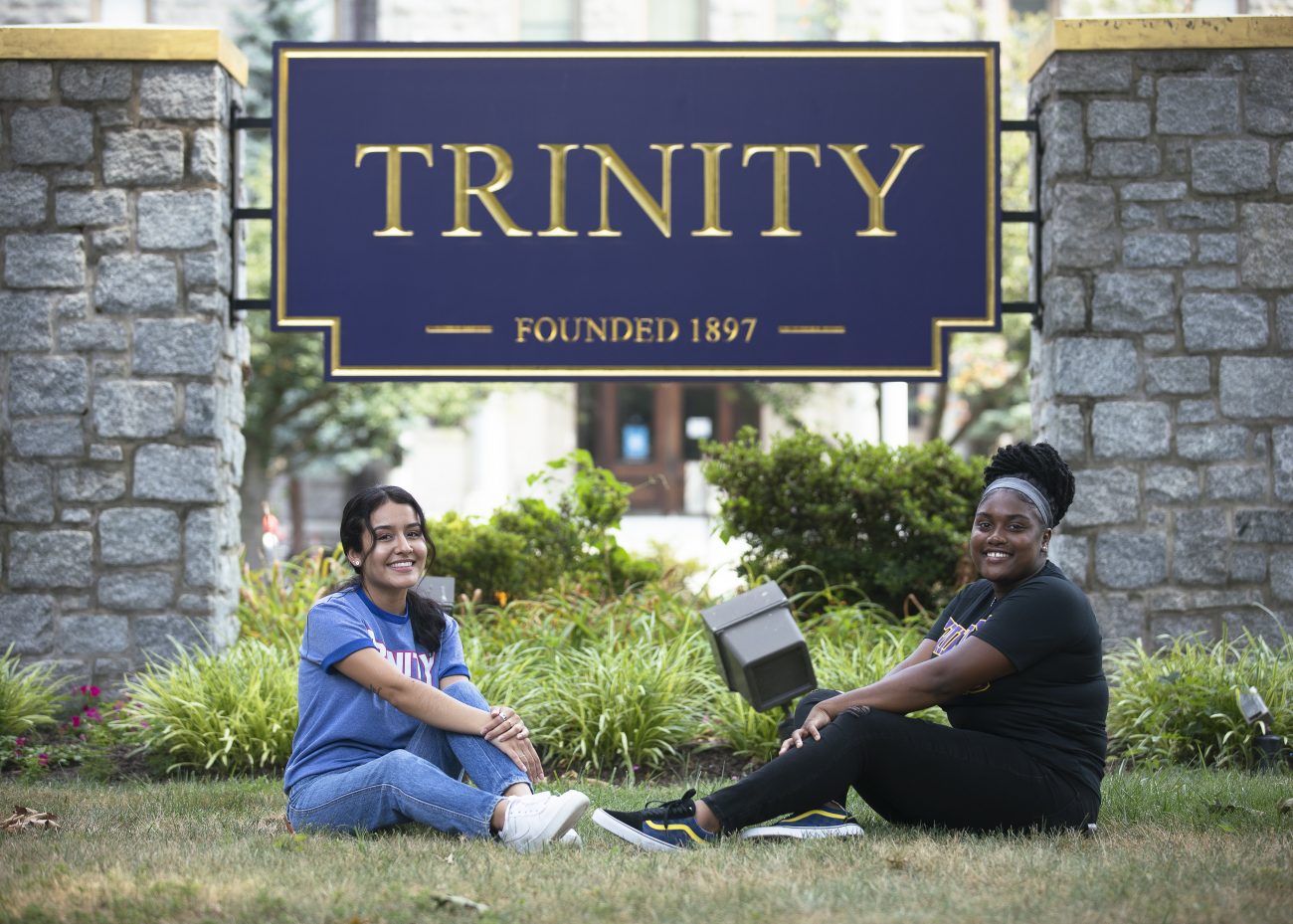WASHINGTON (CNS) — Over 40% of Trinity Washington University’s full-time undergraduate students opened their emails from the university July 23 to learn they will start the school year with a clean financial slate, because the university paid off their outstanding debts.
Student Anissa Young said that when she saw the email, “at first I thought it was just a scholarship program that I had to apply to.” Then the rising junior from Laurel, Maryland, went back to reread the message soon after that.
“Fifteen minutes later I went back and looked at it again and thought, ‘Oh, my God, is this what I think it is?’ I sent it to my dad, my aunt, my boyfriend, asking them, ‘Am I reading this right?'”
[hotblock]
They assured Young that it was indeed the good news she thought it was. Her debt balance from her first two years at Trinity — around $11,000 — had been paid.
Pat McGuire, Trinity’s president, said the school used funds from the American Rescue Plan to pay off more than $2.3 million in unpaid tuition balances for 540 students. The decision to spend the federal funds to wipe out the debt balances didn’t seem to have many downsides, she told the Catholic Standard, archdiocesan newspaper of Washington.
For some time, “we had been considering how to deal with the students’ unpaid balances,” McGuire said. “It was a lose/lose proposition” to keep carrying balances for students who could ill afford to repay them, she said, particularly when the pandemic put so many people out of work or reduced their hours and income. “The federal grants were a windfall,” she added.
“Many of our students lost their jobs at restaurants and other service locations and others were also the primary financial support for their families, making it hard to pay their tuition bills,” said McGuire in a release from the university. “While students could register for the next semester, they still had balances.”
[tower]
She told the Standard that the university’s administration team concluded it was important to do whatever it takes to keep students in school, progressing toward degrees and stable, long-term employment, by assisting them to get them out of tight financial situations permanently.
McGuire said that in addition to the funds from the American Rescue Plan, Trinity’s finances over the last year and a half were bolstered by donors “who really stepped up with extra financial gifts.”
Many said they knew the pandemic would create financial hurdles and they boosted their financial support to help, she said.
“Some of the gifts were at levels I hadn’t seen before,” McGuire said. As a result, “we’re on good financial footing” going into the next year, even after clearing the balances of so many students.
Over half of the students whose balances were cleared are residents of the District of Columbia and another 42% are Marylanders, according to the university.
Trinity is the only university in the District of Columbia that is designated as both a predominantly Black institution and a Hispanic-serving institution. Trinity enrolls over 1,800 students in its undergraduate and graduate programs and 95% are Black, Hispanic or multiracial.
The Trinity release said the median family income of full-time undergraduates is about $25,000; 80% are eligible for Pell Grants.
Young said her father had been paying down her balance a little at a time until his job as a truck driver was cut back from five days a week to two or three days during the worst part of the pandemic shutdown.
“We were OK with money for groceries, but we hadn’t been able to pay toward the tuition since the spring of 2020,” she said.
She has been working at a restaurant while taking courses to become a certified nursing assistant, to increase how much she can earn in a part-time job while attending Trinity.
Young is the first in her family of Jamaican immigrants to attend college, though she said her sister, a ninth grader, hopes to follow in her footsteps, maybe even aiming for Harvard University.
The Youngs moved to the United States when Anissa was 15. She thought that when she graduated from high school, she would only be able to afford a community college. Then she earned a leadership scholarship to Trinity that got her started at the women’s liberal arts university.
Now 20, Young has a double major in psychology and business administration. She hopes one day to run a nonprofit that assists child victims of sexual assault.
The email announcement from the university is just one more reason why she said she loves Trinity.
“I am truly grateful to Trinity and to the American Rescue Plan,” she said.
***
Zapor writes for the Catholic Standard, newspaper of the Archdiocese of Washington.
PREVIOUS: Boston Globe: Police charge McCarrick with assault in case dating to 1970s
NEXT: Efforts to amend House appropriations bills with pro-life riders fail




Share this story